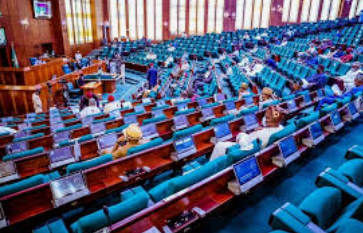
The bill Sponsored by Deputy Speaker, Benjamin Kalu and 12 others seeks to alter Sections 48, 49, 71, and 117 of the 1999 Constitution (as amended) to create one “Special seat reserved exclusively for women in the Senate and House of Representatives for each state of the federation and the Federal Capital Territory .”
The bill proposes to take effect after the term of the current national assembly elapses and is subject to review every 16 years.
The bill also proposes to alter Section 91 of the constitution to provide for three special seats “Reserved exclusively” for women in the State Houses of Assembly.
Leading the debate, a member representing Lavun/Mokwa/Edati Federal; Constituency, Niger State and co-sponsor of the bill, Joshua Gana, said the proposed law will address the “Profound imbalance and the under-representation of women in the National Assembly and at sub-national levels.”
Gana added that the bill is “Anchored on the fundamental principle of equitable representation and aims to empower women by ensuring their voices are not only heard but that they actively contribute to shaping the legislative landscape and the overall development of our nation. The issue of gender equality and representation lies at the heart of our constitutional democracy,” he said.
He lamented that even though the Constitution guarantees equal rights, the representation of women in the legislature has been “Alarmingly low.”
He continued, “In the 7th, 8th, and 9th Assemblies, women accounted for only 6.4 per cent, 6.1 per cent, and 2.7 per cent of the Senate respectively; and 6.4 per cent, 3.05 per cent, and 4.7 per cent of the House of Representatives respectively.
“These statistics underscore the urgent need for proactive measures to ensure equitable representation and amplify the voices of women in our legislative houses at the national and sub-national levels.
“The rationale behind this amendment is grounded on the principles of fairness and inclusivity.
“Globally, Nigeria lags in women’s representation in parliament, ranking among the lowest. Countries that have implemented affirmative action, like Rwanda and Andorra, have seen significant strides towards gender equality in governance,” he stated.
In his contribution, the spokesman for the House, Akin Rotimi, said there is a “Broad consensus” for more women representation in the parliament.
On his part, the minority leader of the House, Kingsley Chinda, supported the bill, saying the parliament needs to correct the deficiency.
He said, “We must make a deliberate effort to solve problems where we see them,” he said.
Kelechi Nwogu from Rivers, corroborated Chinda’s argument, saying women should be given a “better opportunity” in politics.
A lawmaker from Kano State, Ghali Tijani said rather than reserve special seats for women, political parties should deploy mechanisms to improve women’s participation in politics.
Olamijuwonlo Alao Akala from Oyo, Patrick Umoh from Akwa Ibom, and Billy Osawaru from Edo also opposed the bill, saying it was at variance with the provisions of the constitution.
A similar bill was debated in the plenary in the 9th assembly but failed to scale through in both chambers of the bi-cameral legislature.










